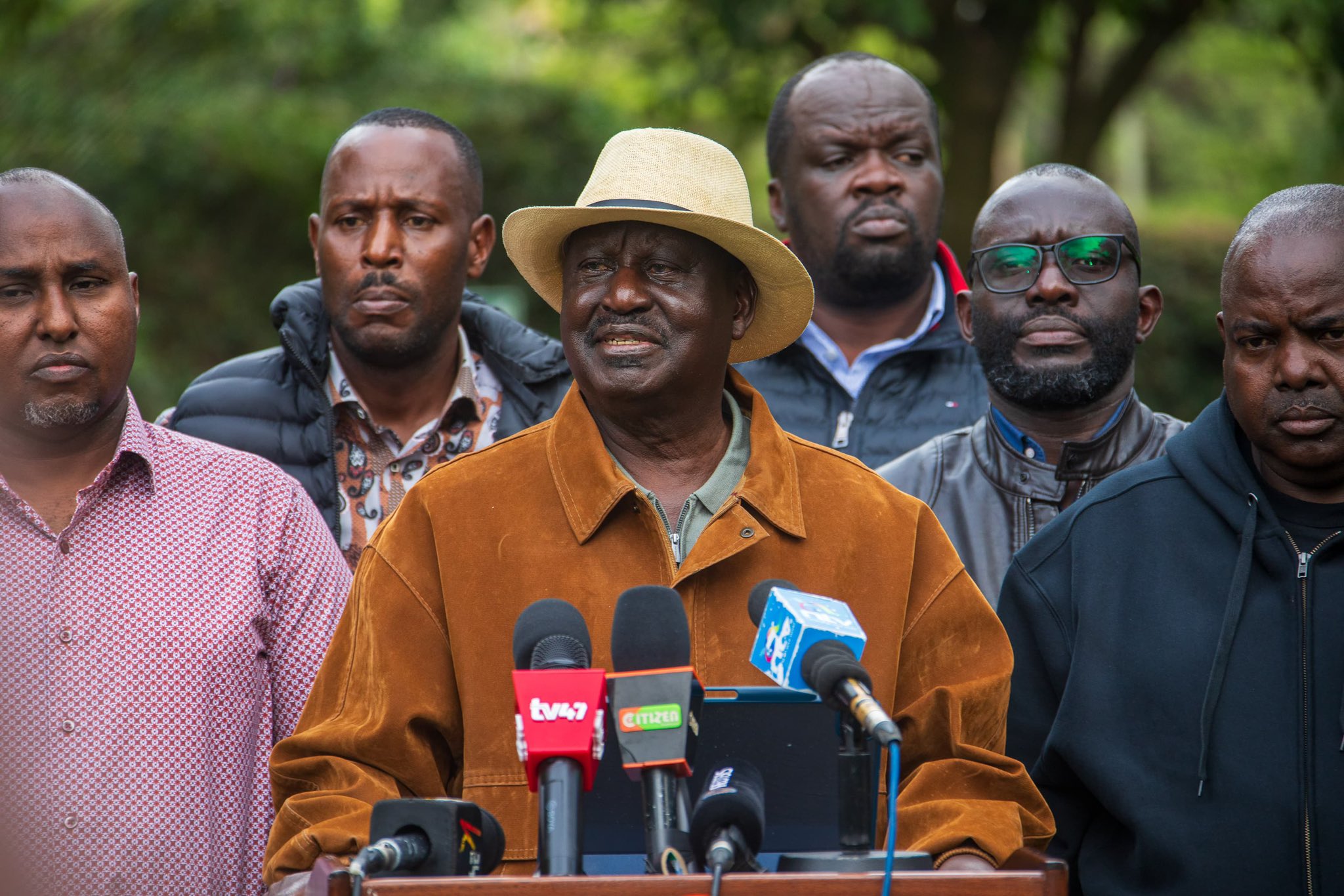
Former Prime Minister Raila Odinga has said that Interior CS Kipchumba Murkomen issued an apology to him and Kenyans over the 'shoot to kill' directive.
Raila condemned Murkomen over remarks perceived to support the use of lethal force against protesters during the June 25 demonstrations in Nairobi.
The former Prime Minister said that while acts of violence and destruction witnessed during the protests should be condemned, police must not resort to unconstitutional killings.
Speaking on Monday during the marking of Saba Saba, Raila added that Murkomen vowed that going forward, police will treat Kenyans with care.
"I said it was totally out of order, and he apologised to me and to the people. Police should handle people with care," Raila said.
The CS came under fire over his sentiments suggesting that police had the right to use lethal force to defend public infrastructure.
“We have witnessed a lot of bloodshed recently. Children who went out to demonstrate, some of them died – some of them shot by the police,” Raila said.
“The police should never ever shoot to kill. Police have no licence to kill human beings. If somebody has committed a crime, arrest that person and take them before a court of law.”
Murkomen, however, denied issuing a shoot-to-kill directive, claiming his comments were a legal interpretation of the rights police officers have to defend critical infrastructure.
He clarified his role, stressing that the constitution bars him from giving operational instructions to the police.
“I am saying this with all humility. I cannot order an Inspector General of Police on anything because the Constitution does not allow me to do so,” Murkomen said.
“What I did was to state the law. As a lawyer, I have read, studied, and understood these laws,” he added.
“You will not find me anywhere saying somebody should be shot to be killed. You will not find me anywhere saying a police officer should take orders from me.”
Speaking during the 2025 Saba Saba Day, Raila suggested proposals among them, that the country urgently turns to the agenda of comprehensive police reforms to enhance accountability, transparency and improve the police-to-people relationships.
"The police service must be reformed to become a people's defender, servant," he said.
Raila wants a conclave he envisages come up with better and sustainable ways for addressing transparency, accountability and impunity in regard to corruption to ensure leaders are held accountable for their actions.











